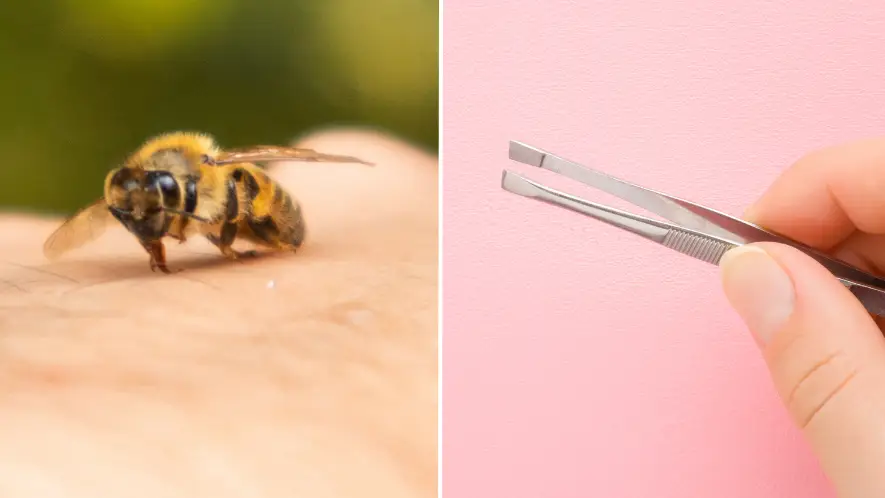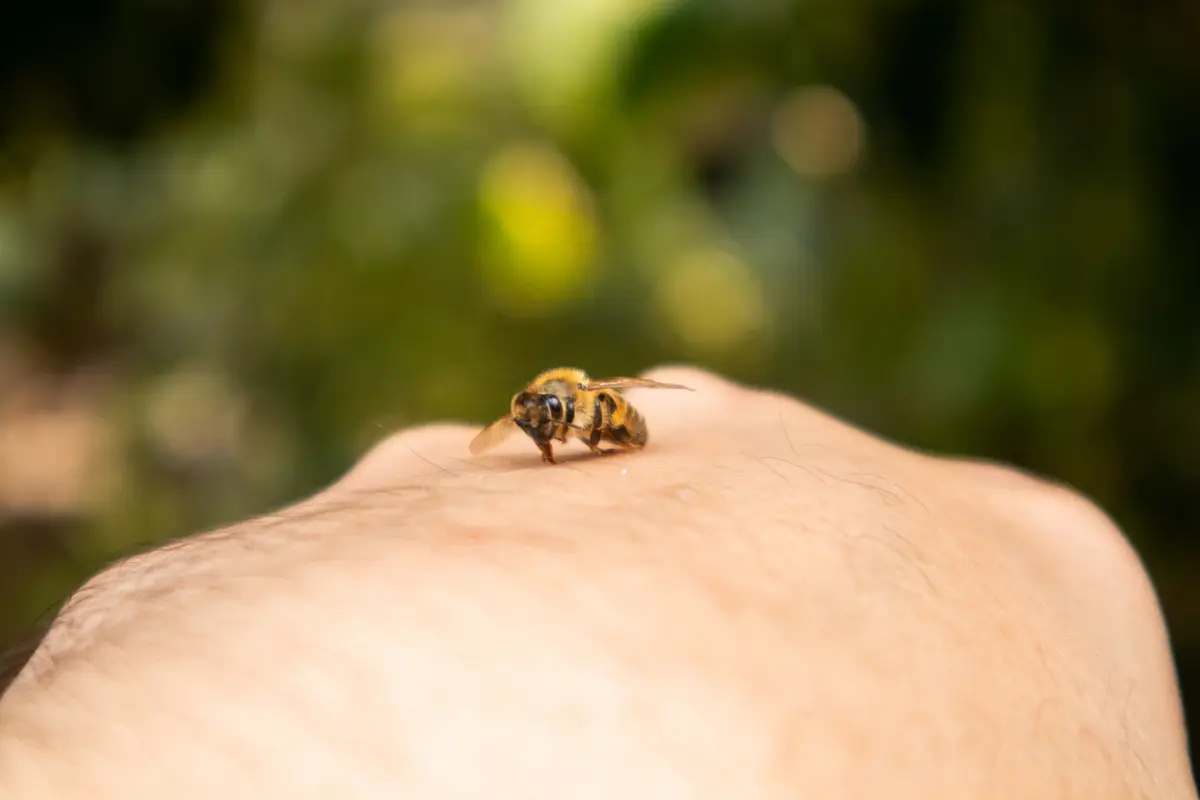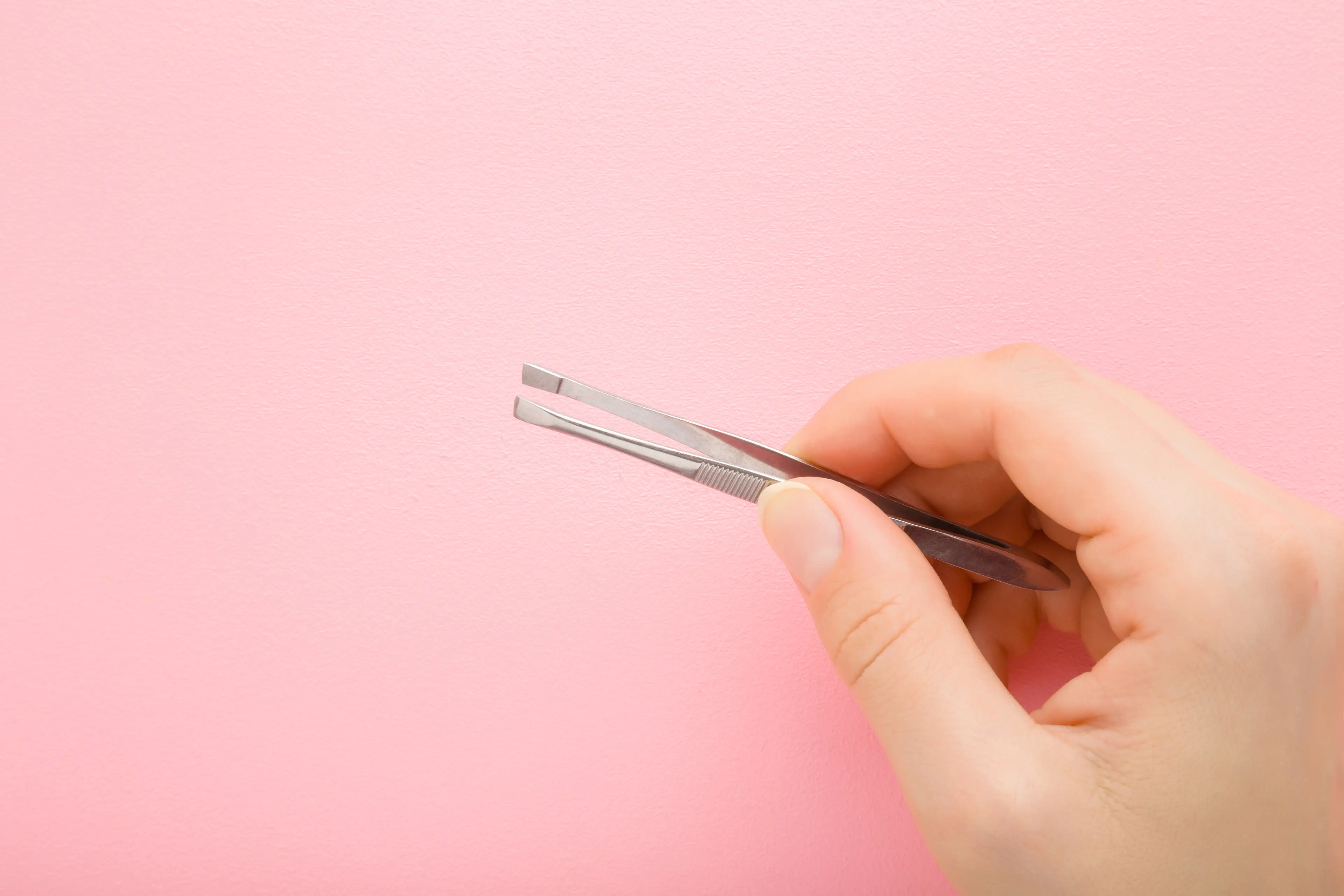
The UK has seen a huge 'surge' in people seeking advice on insect bites and stings from the NHS website ever since the weather started picking up around the May bank holiday weekend.
So, to make sure you're primed and prepped for all your BBQs, beer garden days out and outdoor festivals we're rounded up all the best NHS advice on how to deal with bee or wasp stings alongside a pretty grim reason as to why you should never remove bee or wasp stings with tweezers.

While getting stung or bitten by a creepy-crawly is not exactly ideal, they are not usually serious and tend to get better after a few days.
Advert
However, they can sometimes cause infection or a serious allergic reaction.
So, without further ado, let's get into it.
What are the main symptoms of an insect bite or sting?
This may seem obvious but you can never be too informed with these things.
You need to look out for two main symptoms to check if it's actually an insect bite or sting:
- Pain where you were bitten or stung
- A small, swollen lump on the skin
The lump may look red for some people and you should be able to feel it.
What to do if you've been bitten or stung by an insect?
Now, do not fret if you wind up getting nipped by a bee, wasp or hornet stinger as you can often treat an insect bite or sting without seeing a GP.
Keep these three tips in mind and you'll be grand in no time:
- Brush or scrape the stinger sideways with your fingernail or the edge of a bank card.
- Do not use tweezers to pull out a stinger as you could squeeze poison out of it.
- Wash the area with soap and water.

And voila, apart from the lingering pain from the first sting, you'll probably start feeling better in no time at all.
Acosia Nyanin, NHS England’s Deputy Chief Nursing Officer, said: "We often see a rise in insect bites and stings during the summer months, but the number of people seeking advice from the NHS website has spiked a bit earlier this year.
"The NHS website is there for anyone who needs it throughout the bank holiday weekend - whether you’re searching for advice on insect bites or thousands of other medical conditions.
"For non-urgent medical help people can contact NHS 111 and those in life threatening emergencies should call 999."
Find out more on the official NHS website here.